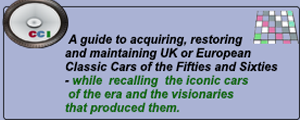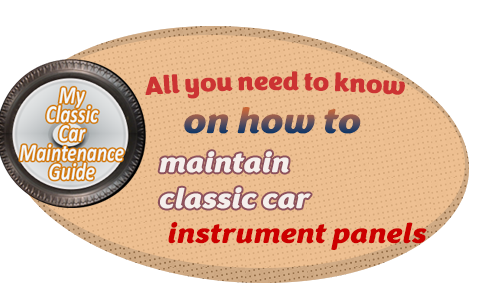
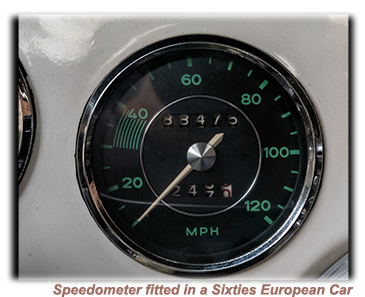 Restoring the clocks and gauges in a classic car can be a difficult and expensive task, Once the job has been completed, there should be no reason to suspect that the gauges will cause any problems during the second phase of the vehicle’s life.
Restoring the clocks and gauges in a classic car can be a difficult and expensive task, Once the job has been completed, there should be no reason to suspect that the gauges will cause any problems during the second phase of the vehicle’s life.
Although they should always be found in perfect condition fron the outset, the instruments, gauges, and clocks in a classic car will still requires regular maintenance, particularly if the car is being driven regularly, in particular cleaning, lubrication, and calibration.
![]()
The first step is locating the faulty fuse connected to the instrument cluster to begin troubleshooting. Once the fuse has been located, you can examine it to see if it needs to be changed or if it has blown.
All that is required is a test light or multimeter that can be used to confirm this and make sure the right voltage is being produced.
 Once the running repair has been effectively completed it is advisable to have the vehicle checked out by an auto electrician just to make sure that everything is back to normal, and there is no problem with the wiring.
Once the running repair has been effectively completed it is advisable to have the vehicle checked out by an auto electrician just to make sure that everything is back to normal, and there is no problem with the wiring.
Here are some tips on how to maintain these components in tip-top condition:
![]() : Dust and dirt can accumulate on the instrument panel, so it's important to clean it regularly. Use a soft, damp cloth to gently wipe down the panel, being careful not to saturate it with water. A mild cleaner can be used if the panel is particularly dirty.
: Dust and dirt can accumulate on the instrument panel, so it's important to clean it regularly. Use a soft, damp cloth to gently wipe down the panel, being careful not to saturate it with water. A mild cleaner can be used if the panel is particularly dirty.
![]() Make sure that all the lights on the instrument panel are working properly. If a light isn't working, it may need to be replaced.
Make sure that all the lights on the instrument panel are working properly. If a light isn't working, it may need to be replaced.
![]() Make sure that all the wiring for the instrument panel is in good condition and that there are no loose connections. If you notice any frayed or damaged wires, they should be repaired or replaced as soon as possible.
Make sure that all the wiring for the instrument panel is in good condition and that there are no loose connections. If you notice any frayed or damaged wires, they should be repaired or replaced as soon as possible.
![]() Certain gauges and instruments require periodic lubrication to ensure smooth operation. It is important to know which ones need oiling and which do not. That is why its good advice to check the owner's manual if the clocks and gauges are original. If the source is unknown, consulting a professional mechanic for guidance- especially which lubricants are best suited and the situation of the lubrication points.
Certain gauges and instruments require periodic lubrication to ensure smooth operation. It is important to know which ones need oiling and which do not. That is why its good advice to check the owner's manual if the clocks and gauges are original. If the source is unknown, consulting a professional mechanic for guidance- especially which lubricants are best suited and the situation of the lubrication points.
![]() If the car is being driven, over time, gauges and instruments are liable to become inaccurate due to wear or damage. Calibration involves adjusting the internal mechanisms of the instruments to ensure that they provide accurate readings.
If the car is being driven, over time, gauges and instruments are liable to become inaccurate due to wear or damage. Calibration involves adjusting the internal mechanisms of the instruments to ensure that they provide accurate readings.
Unless the person charged with maintaining the vehicle has specific knowledge, this process should be done by a professional mechanic or instrument specialist with the proper tools and expertise.
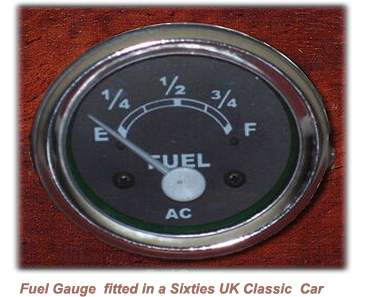 If any of the gauges, lights or wiring are found to be faulty and need repairs, it is best to get it done by a professional auto electrician with experience working on classic cars, as they will have the proper tools and knowledge to ensure that the repairs are done correctly.
If any of the gauges, lights or wiring are found to be faulty and need repairs, it is best to get it done by a professional auto electrician with experience working on classic cars, as they will have the proper tools and knowledge to ensure that the repairs are done correctly.
Generally, if only one gauge on your car isn't working, there might be a problem with the sending unit, the wiring, or the gauge itself.
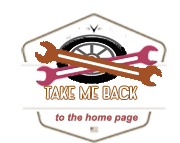 It's likely that the sending unit or the gauge itself is malfunctioning if the gauge behaves differently than predicted. Tests can be carried out to identify the problem and determine which one it is. The procedures for testing the sending unit and the gauge may change depending on the type of vehicle.
It's likely that the sending unit or the gauge itself is malfunctioning if the gauge behaves differently than predicted. Tests can be carried out to identify the problem and determine which one it is. The procedures for testing the sending unit and the gauge may change depending on the type of vehicle.
By following these steps,the instrument panel in a classic car will remain in perfect working condition. Regular maintenance will help prevent small issues from becoming major problems.
int4

 While this catastrophic situation can rarely be regarded as regular maintenance in most cases, a simple blown fuse is usually to blame when all the gauges in a car cease working at once- an easy repair.
While this catastrophic situation can rarely be regarded as regular maintenance in most cases, a simple blown fuse is usually to blame when all the gauges in a car cease working at once- an easy repair. 



